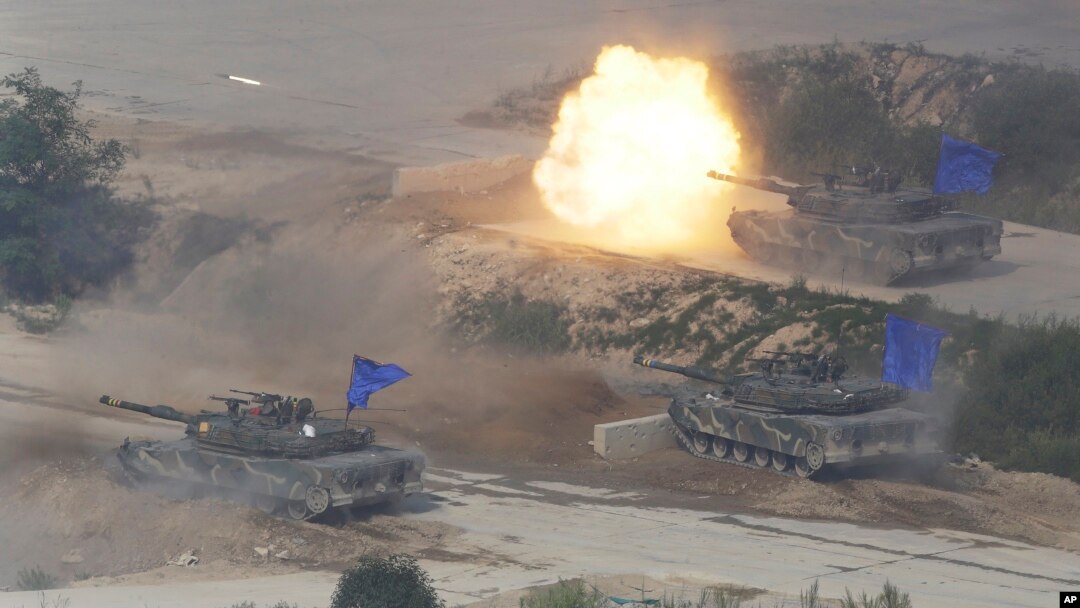The U.S. and South Korea have held their largest-ever joint military drill.
The live-fire drill was held Friday near the border town of Pocheon.
The joint military exercises follow days of tensions between North and South Korea. Such exercises in the past have infuriated North Korean leader Kim Jong Un, who often responds with strong threats to both Washington and Seoul.
Kim on Friday said he credits his country's nuclear weapons, instead of its negotiating skills, for the ability to secure a "landmark" agreement with the South when the two countries recently found themselves on the brink of an armed conflict, according to Pyongyang's KCNA new agency.
The deal between the North and the South was reached after round-the-clock negotiations in the border truce village of Panmunjom.
Kim is reported to have said at a meeting of the ruling Working Party the Panmunjom agreement "was by no means something achieved on the negotiating table, but thanks to the tremendous military muscle with the nuclear deterrent for self-defense."
Also at the meeting, the North Korean leader dismissed several of the members of the Central Military Commission and replaced them with new members, the state news agency said. The reasons for the dismissals were not immediately clear. The military commission is the ruling party's top policy-making body.
South Korea turned off its propaganda broadcasts into North Korea on Tuesday as part of the agreement to defuse the latest tensions on the Korean peninsula.
For its part, North Korea expressed "regret" about a recent landmine explosion that maimed two South Korean soldiers.
South Korean presidential security adviser Kim Kwan-jin said the two Koreas also agreed to hold talks soon, either in Seoul or Pyongyang, about improving ties 62 years after they ended the Korean War with a truce, not a peace treaty. The two sides said they will resume reunions in September for families separated by the Cold War-era conflict.
The United States, a staunch ally of South Korea, welcomed the agreement and said it hoped tensions on the Korean peninsula will be diminished.
State Department spokesman John Kirby called the accord a compromise. He said it now is up to North Korea "to act and not simply make assurances" about its military activities along the border between the two countries.



